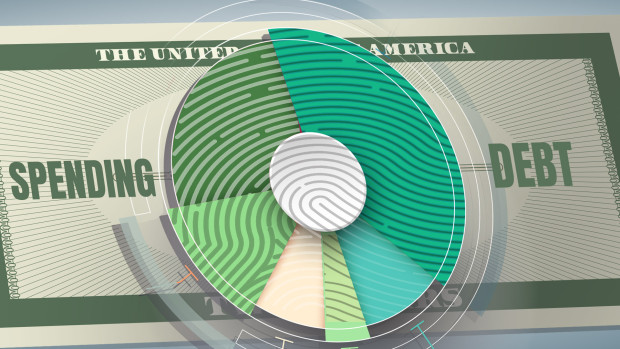
Many of us have a complicated relationship with money.
A Bankrate survey released in May found that money is often a significant cause of stress for most Americans: 52% said money has a negative impact on their mental health, a leap from 42% a year ago.
DON'T MISS: How to Budget Your Money in 6 Steps
Among those who were dealing with that negative impact, more than 82% said feelings of stress, anxiety, worrisome thoughts, loss of sleep, and depression are caused by economic factors, including inflation and rising prices, increasing interest rates, and a lack of a stable income or job security.
Money is the most cited factor that has a negative impact on U.S. adults’ mental health -- ahead of one’s own health, current events, the health of family and friends, relationships with family and friends, and work.
However, surveys indicate that many Americans lack financial literacy when it comes to handling their money. Knowledge is power, and here’s what financial planners think everyone should know to get started.
Money Management Tips
1. Spend less than you earn
If you want to have more money, you can start by lowering your spending. If you have to put a non-essential purchase on a credit card, you probably shouldn't be buying it.
"Don’t try to 'Keep up with the Joneses,'" said Evan Henderson, a CFP in Appleton, Wis. "Don’t worry about getting the nicest, newest thing that comes out because you saw your neighbors got it. This is often a great way to fall behind financially."
"Decide what is most important to you and then decide if buying that item is truly worth it," he said. "You never know what other people have going on in their lives, especially financially. So, don’t try to keep up with what you think they are doing."
Compare the Best Savings Rates
2. Have an emergency fund
An emergency fund is an account where you keep cash that you don't need for any other purpose except to pay bills or expenses that crop up unexpectedly. It should be a savings account that you can access without paying a fee, and ideally earning some interest.
"An emergency fund ensures you're financially prepared to handle unexpected costs without resorting to high-interest debt, depleting your savings, or pulling money from other places designed for long-term investments used to fund your financial future," said Ashley Folkes, a CFP in Hoover, Ala.
The amount you keep in your emergency fund may vary depending upon your situation, but most financial experts advise having three to six months worth of living expenses.
3. Pay down high-interest debt
High interest debt will prove costly over time. Higher interest rates mean you'll be paying more in interest accrual, according to Bankrate, which can lead to growing debt if you're unable to pay down the principal and interest in full each month.
Kevin Brady, a CFP in New York, said this includes credit card debt or any type of financing with a rate in the double-digits.
To avoid taking on more credit card debt in a financial pinch, build a one-month emergency fund and then turn your attention to paying off the debt.
4. Contribute enough to get your 401(k) match
Roughly 35% of working age people in the U.S. have a 401(k) retirement plan, according to U.S. Census Bureau statistics.
When you sign up, you're agreeing to have a percentage of each paycheck sent directly into an investment account that you can access once you retire. Your employer may match part or all of your annual contribution, up to a limit.
"This is 100% "free money" that is left on the table if you do not do this," Brady said. "The employer match is part of your total compensation package."
5. Keep investing simple
Day-trading may sound exciting, but the Securities and Exchange Commission warns that it requires "meticulous market and news monitoring, is fast moving, and involves a large amount of speculation."
Many of the so-called pandemic stocks that looked like a real hot item when we were all stuck in our houses have lost their luster as the world -- we hope -- returns to normal. To be successful at investing, the majority of investors need to play the long game.
"Good investing should be boring," said George R. Gagliardi, a CFP in Lexington, Mass. "There should be no need to look at your portfolios every day if they are well diversified and age-appropriate. If you are obsessing over the indices, you are doing it all wrong. Investing is a marathon, not a sprint."
Diversification is essential, he added. "Few people have the knowledge and experience to successfully pick individual stocks, and there are plenty of inexpensive broad-based equity ETFs and funds out there to choose from. Go wide -- geographically, industry-wise, company-wise -- and leave stock picking to the pros."
The Takeaway: Spending less than you earn is a basic tenet of smart money management, but experts say saving cash, paying down high-interest debt, and investing with a long-term view are important too.







